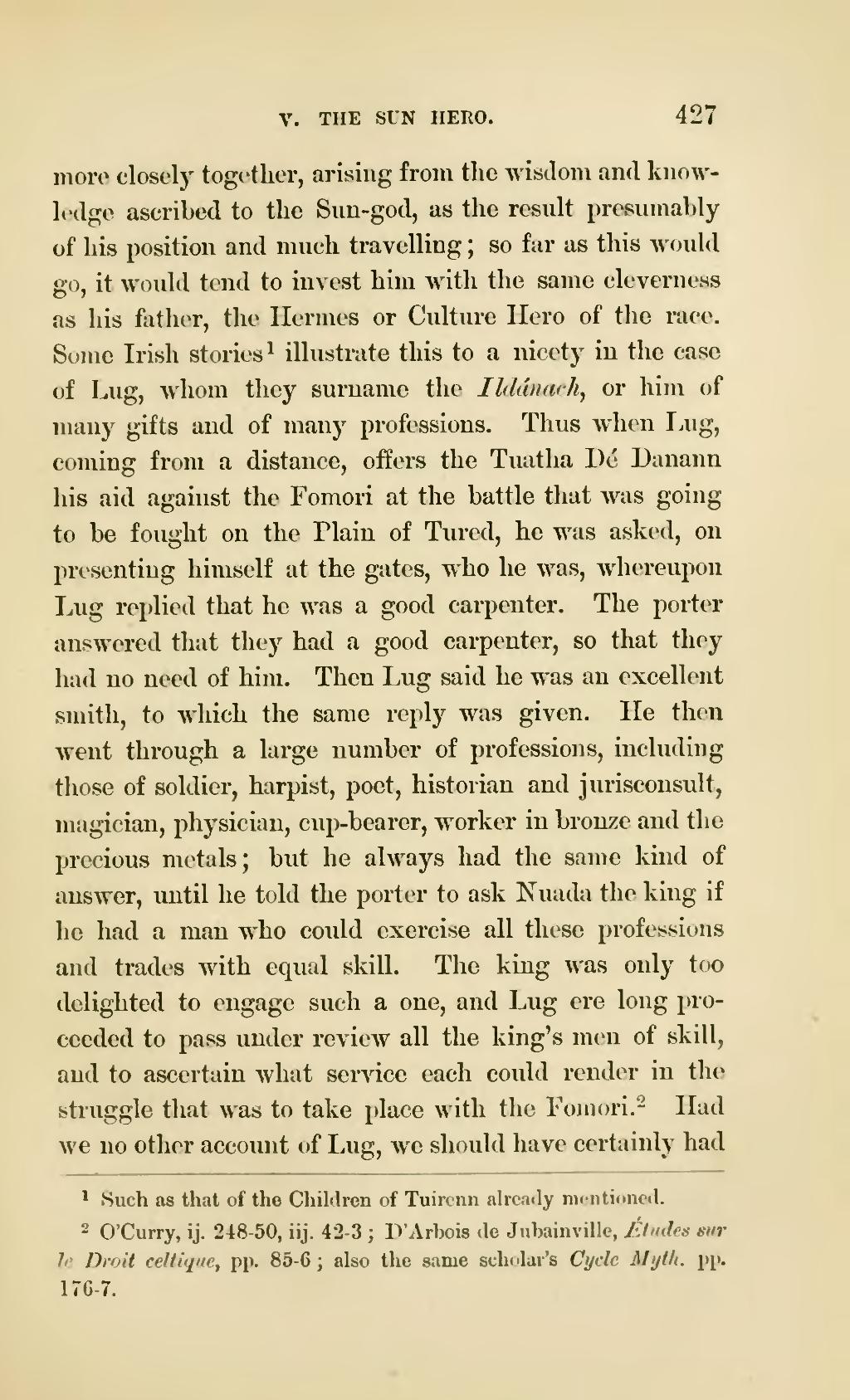more closely together, arising from the wisdom and knowledge ascribed to the Sun-god, as the result presumably of his position and much travelling; so far as this would go, it would tend to invest him with the same cleverness as his father, the Hermes or Culture Hero of the race. Some Irish stories[1] illustrate this to a nicety in the case of Lug, whom they surname the Ildánach, or him of many gifts and of many professions. Thus when Lug, coming from a distance, offers the Tuatha Dé Danann his aid against the Fomori at the battle that was going to be fought on the Plain of Tured, he was asked, on presenting himself at the gates, who he was, whereupon Lug replied that he was a good carpenter. The porter answered that they had a good carpenter, so that they had no need of him. Then Lug said he was an excellent smith, to which the same reply was given. He then went through a large number of professions, including those of soldier, harpist, poet, historian and jurisconsult, magician, physician, cup-bearer, worker in bronze and the precious metals; but he always had the same kind of answer, until he told the porter to ask Nuada the king if he had a man who could exercise all these professions and trades with equal skill. The king was only too delighted to engage such a one, and Lug ere long proceeded to pass under review all the king's men of skill, and to ascertain what service each could render in the struggle that was to take place with the Fomori.[2] Had we no other account of Lug, we should have certainly had
Page:Origin and Growth of Religion (Rhys).djvu/443
V. THE SUN HERO.
427
